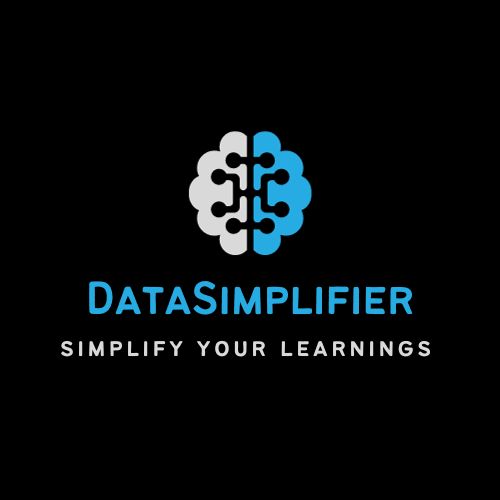Introduction
Data analysts are arguably the most in-demand professional today. As organizations more and more rely on data to make informed decisions, the demand for skilled data analysts continues to rise in technology, finance, healthcare, and marketing. This is a comprehensive guide to job roles of data analysts that would be very helpful to students and professionals looking for career advancement in data analytics.

This ultimate guide will take you through the job roles of a data analyst; it contains what can expect each role: whether you are at the very beginning of your career or interested in more advanced positions, it’s quite important to know the differences in responsibility and required skills.
To determine if you fit the shoe at the end, we take you through some job descriptions to an Accenture job while underlining the junior and senior data analyst roles right through to specialized roles of the data research analyst with regards to healthcare. And we understand that this gets your resume right and help in preparation for interviews for sure.
The landscape of data analytics is constantly changing, and this guide will equip you with the knowledge you need to confidently navigate this dynamic field. By the end of this article, you’ll understand job functions in data analytics and how to position yourself for success in this exciting career path.
I. Overview of Data Analyst Job Roles
Entry-Level Data Analyst
Responsibilities:
An entry-level data analyst is at the very forefront of a field called data analytics, in that he or she is collecting, organizing, and making sense of that data. Most of this work usually entails cleaning that data, some simple statistics, and just generating straightforward reports. The work in this function often requires communication with a senior data analyst to make sure the subtle nuances of interpreting data translate into valuable insights for use in driving business decisions.
Skills/Expertise Used:
Fluency with Excel; familiarity with basics of SQL
Familiarity with data visualization tools like Tableau or Power BI
Strong analytical thinking and problem-solving abilities
Job Description Example:
A job description for a junior data analyst would center on attention to detail and working with large datasets. Hiring managers typically look for quick learners who want to develop their analytical skills.
Mid-Level Data Analyst (Data Analyst II)
Responsibilities:
A mid-tier data analyst tends to assume more responsibility and independence compared to the entry tier. They handle vast datasets, complex data wrangling, and usually work hand in hand with different groups to identify patterns and knowledge. This will involve analyses that present insights to concerned stakeholders and further influence policy-making decisions.
Requirements: Working knowledge in R or Python for processing
Advanced skills in SQL to execute advanced queries.
Machine learning algorithmic abilities to predict insights
Resume Sample:
The job description of a data analyst II often mentions project management skills and the ability to translate complex data findings into actionable insights for various stakeholders.
Senior Data Analyst
Roles:
Senior data analysts manage projects in the entire lifecycle from when the project is initiated through to its completion. Such roles include building data models, leading analysis initiatives, and mentoring junior analysts. They are strategic, leading to collaboration with leadership teams in formulating data-informed decisions that guide organizational direction.

Skills needed in the role: Expert-level skills in SQL, R, or Python
Stratified statistical analysis capabilities using big data technologies (such as Hadoop and Spark)
Excellent communication capabilities such that complex information is understood by non-technical persons
Example Job Description:
Job description of a senior data analyst is usually related to leadership, advanced analytical ability, and proven usage of data for influencing business outcome.
Specialized Data Roles
Healthcare Data Analyst:
Health care data analysts are primarily working with the interpretation of medical data that improves the patients’ outcome and services to health care. These analyze the patient care, the performance of the hospitals, and their operational efficiency data.
Sample job description: a health care analyst’s duties could include interpretations of the clinical data created reports meant for decision, and ensures to be able to deliver work in accord with any set healthcare-related regulations
Data Research Analyst:
Data research analysts indulge in an extensive research concerning data patterns or trends at times carrying out their assignment in scholarly or market settings. They are basically the back-bone within the analysis process that derives the foundation for research-related data compilation and analysis.
Example: A job description for a data research analyst can focus on tasks like exploratory data analysis, statistical testing, and research finding presentation.
Data Entry Analyst
Responsibilities:
Despite the fact that data entry analysts spend most of their time ensuring that the data in the databases is correct and consistent, it’s an important job as it is the foundation or forms the core for good and reliable data to analyze it. Not very analytical but gives the perfect entry point for many who wish to join the line of work that encompasses data professionals.
Skills Required: High attention to detail
Data entry software and database management
Basic understanding of data structures
II. General Skills for All Data Analyst Jobs
There are some skills that are generic and foundational to becoming a data analyst, irrespective of the specific job title.
Technical Skills: Master SQL because it is the core language for database querying and manipulation
- Proficiency in at least one programming language: Python or R, used for statistical analysis and data visualization.
- Ability to use tools like Tableau and Power BI to visualize data
- Soft Skills
Good analysts are those who can explain complex data insights to different stakeholders in simple words.
- Analytical skills enable the analyst to identify problems from the datasets and then formulate solutions from the data output.
- Teamwork is inevitable, since data analysts usually work in teams and within different departments
Knowledge of the industry

It would be a plus if one knew the specifics of specific industries (for example, finance, healthcare). An analyst working in the health sector needs to know about the laws and regulations concerning data privacy, and a finance analyst needs to know how markets work.
III. How to Create a Strong Data Analyst Resume
A resume is the ticket to getting an interview in this highly competitive field of data analytics. Here are tips on how to make it better:
Using key words on this resume namely jobs associated with the data analyst, as well as job descriptions of an Accenture data analyst-so applicant tracking systems see it passable to the employers. Show what you accomplished instead of listing job duties. For example, “Efficiently optimized queries: reduced processing time of data by 30% shows the value achieved”.
Personal Projects: A personal project is good too. A great idea can be developing some visualization off publicly available data sets, or the analysis of trending issues, to show technical skill as a beginner and as one’s knowledge accumulates in data science areas.
Preparing for the Data Analyst Interviews
Applicants, during an interview should have in their sleeves what makes them special both through their skills in terms of the kind of problem, and more significantly the techniques applied while solving that.
Common interview questions include
How do you approach such a problem as one concerning missing values?.
Can you think of an instance when your analysis culminated in driving a business decision?
Which data visualization tools do you like most and why?

Practical Exercises
A lot of employers might test you by giving you a practical assignment where they may ask you to analyze a dataset on the interview day. Practice typical data analysis tools and get ready to describe your reasoning as you try to tackle the problem.
Conclusion
In a nutshell, the numerous job roles in data analysts are significant for those who are entering or seeking greater heights in data analytics careers. From junior data analysts’ jobs to senior analysts’ strategic insights, all the jobs are integral parts of decision-making processes within organizations. As data analysts continue to be in high demand, anything that looks relevant to the role could help further your career.
As you continue reading through this guide, do not forget that continuous learning and skill building are required. For data analytics job roles and descriptions, join our career insight and real-time job alert Telegram channels. And as you have reached the end of this guide, here’s a special secret: comment your Telegram username below, and we will invite you to our premium community, where you can get exclusive access to all our career resources and job alerts.
And if you work hard and make use of the right resources, you are sure to have a good career in data analytics. Thanks for reading, and good luck in your data analytics journey!
Common Mistakes in Data Analysis
Share the post with your friends

1 thought on “Job Roles of Data Analysts : Here are the best things you need to know”